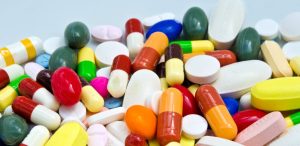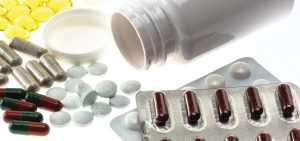Table of Contents
Modafinil Is an Effective Cognitive Enhancement Nootropic
Modafinil Nootropic information is here Interventions in the brain that improve attention, concentration, and information processing in executive processes such as thinking and decision-making are referred to as cognitive enhancement.
Modafinil Nootropic and smart drugs are natural or synthetic compounds that help to boost cognitive functions.
Modafinil is one of the most popular nootropics for its cognitive enhancement functions
Apart from the conventional uses of modafinil in treating sleeping disorders like narcolepsy, sleep apnea, shift work it is proven by various peer-reviewed research studies to generate many other benefits related to the cognitive aspects of the brain. It’s referred to as the wonder drug for a reason by academics, entrepreneurs, professionals, and even military personnel.
Let’s check out its most important cognitive functions of Modafinil Nootropic:
Sharpening memory
modafinil has been proved to improve cognition in depression. It has shown considerable effects on both working memory and episodic memory
Improving focus and alertness
modafinil’s effect on norepinephrine levels can be the reason for increased focus and alertness in individuals.
Intensifying motivation:
modafinil works by increasing levels of dopamine in the brain which is the chemical neurotransmitter responsible for improving motivation.
Minimizing fatigue:
modafinil has been proven to provide energy for long hours without any sensation of weariness in healthy individuals as well as HIV patients fighting extreme fatigue.
Enhanced performance:
modafinil has been proven to improve overall enthusiasm and task enjoyment. Modafinil may help in planning, decision-making, and fluid intelligence, among other aspects of executive function.
Non-addictive:
Many studies have shown that Modafinil is a safe substance and a non-addictive modafinil nootropic with very minimal abuse potential. Even after several years of continuous usage, it does not create tolerance or result in addiction despite stimulating dopamine and histamine in the brain.
Modafinil has also been used for off-label purposes like:
- As ADHD medication.
- To treat depression.
- For multiple sclerosis
- For Weight loss
The pressure to outperform others is considered in today’s competitive business world. It comes as no surprise that entrepreneurs and millennials are among the most frequent nootropics users. Modafinil’s effects of unwavering attention, superhuman levels of concentration, and the ability to push through 14-hour workdays have encouraged professionals to choose modafinil for such cognitive enhancement purposes.
From Wall Street and Silicon Valley executives to university students, everyone is employing this nootropic to gain crazy attention and brainpower. Perhaps you’re wondering why Modafinil is becoming so popular among high-level executives. There are various reasons for this, the most prominent of which is “decision fatigue.”
Consider the following scenario: an individual has a 14-hour shift with a heavy mental effort and is needed to make critical decisions one after the other. He will soon become tired of and disinterested in his dream job. He will begin to lose focus, resulting in a string of unwise decisions. This is when the miracle medicine comes in handy. Hence Modafinil has been called the king of nootropics because of its amazing cognitive enhancement properties.
Works Cited
1. Modafinil Improves Episodic Memory and Working Memory Cognition in Patients With Remitted Depression: A Double-Blind, Randomized, Placebo-Controlled Study. Muzaffer Kaser, Julia B Deakin , Albert Michael , Camilo Zapata , Rachna Bansal , Dragana Ryan , Francesca Cormack , James B Rowe , Barbara J Sahakian.
2. Cognitive enhancing effects of modafinil in healthy volunteers. Danielle C. Turner, Trevor W. Robbins, Luke Clark, Adam R. Aron, Jonathan Dowson & Barbara J. Sahakian.
3. Modafinil improves attentional performance in healthy, non-sleep-deprived humans at doses not inducing hyperarousal across species. Zackary A.Cope, Arpi Minassian, DustinKreitner, David A. MacQueen, MorganeMilienne-Petiot, Mark A.Geyer, WilliamPerry, Jared W.Young.
4. Effects of modafinil on cognitive performance and alertness during sleep deprivation. Wesensten, Nancy J.
5. A phase 3 randomized, placebo-controlled, double-blind, clinical trial of the effect of modafinil on cancer-related fatigue among 631 patients receiving chemotherapy: a University of Rochester Cancer Center Community Clinical Oncology Program Research bas. Pascal Jean-Pierre 1, Gary R Morrow, Joseph A Roscoe, Charles Heckler, Supriya Mohile, Michelle Janelsins, Luke Peppone, Amy Hemstad, Benjamin T Esparaz, Judith O Hopkins.
6. Modafinil. Karl Greenblatt, Ninos Adams.
7. Modafinil reduces depression’s severity when taken with antidepressants. Barbara Sahakian, Dr Muzaffer Kaser.
8. Long-term safety and efficacy of armodafinil in bipolar depression: A 6-month open-label extension study. Terence A.Ketter, JessAmchin, Mark A.Frye, NicholasGross.
9. Modafinil treatment in patients with seasonal affective disorder/winter depression: an open-label pilot study. LeslieLundt.
10. Modafinil and Memory: Effects of Modafinil on Morris Water Maze Learning and Pavlovian Fear Conditioning. Tristan Shuman, Suzanne C. Wood, and Stephan G. Anagnostaras.
11. wikipedia.
12. School of Health Sciences. Wharrad, Heather.
13. FDA basics.
14. United States Drug Enforcement Administration.
15. Drug Scheduling. DEA.
16. Is modafinil safe in the long term? Cox, David.
17. Modafinil treatment for fatigue in HIV+ patients: a pilot study. Judith G Rabkin 1, Martin C McElhiney, Richard Rabkin, Stephen J Ferrando.
18. Modafinil in children and adolescents with attention-deficit/hyperactivity disorder: a preliminary 8-week, open-label study. Samuel W Boellner, Craig Q Earl, Sanjay Arora.
19. Modafinil improves symptoms of attention-deficit/hyperactivity disorder across subtypes in children and adolescents. Joseph Biederman, Steven R Pliszka.
20. Modafinil in the treatment of excessive daytime sleepiness in children. Gozal, Anna Ivanenko Riva Tauman David.
Listen to the blog of this podcast :







Add comment